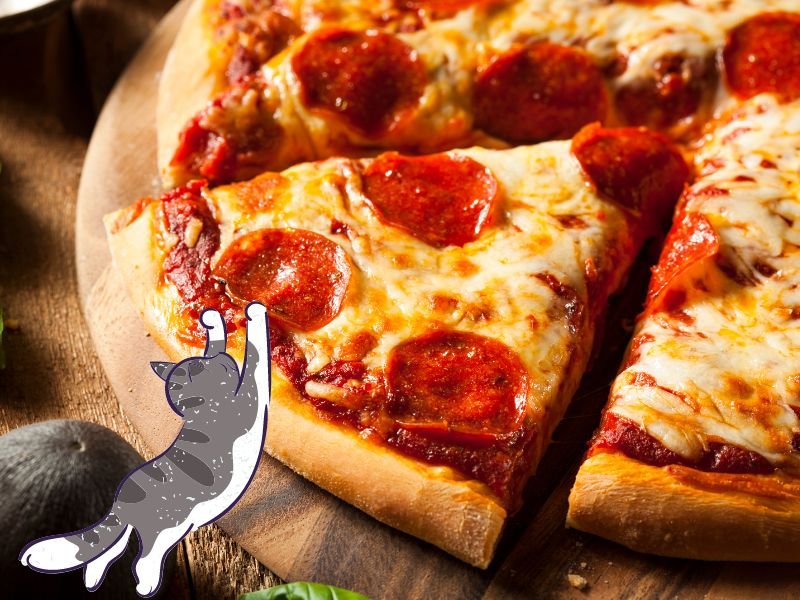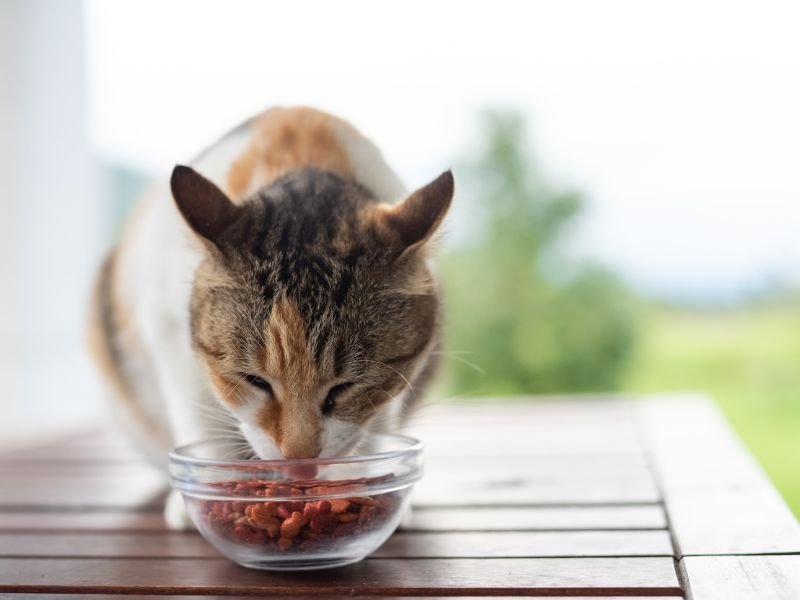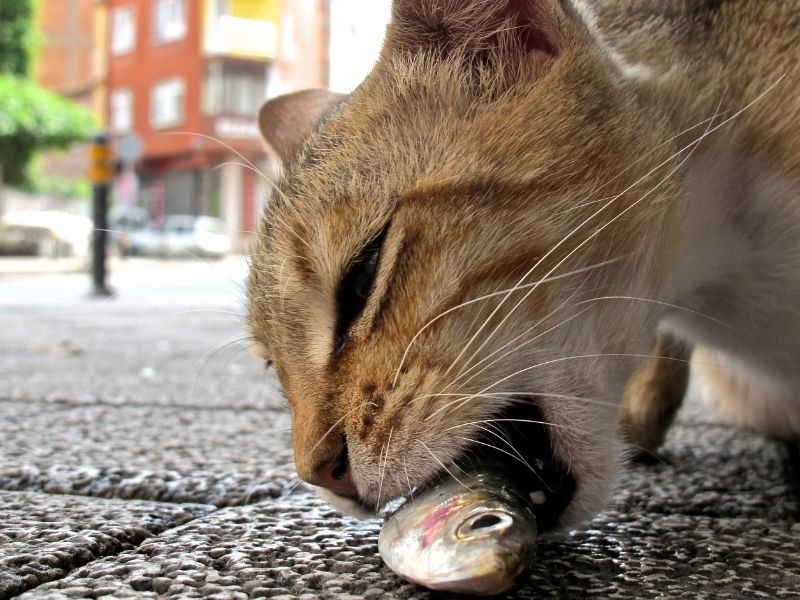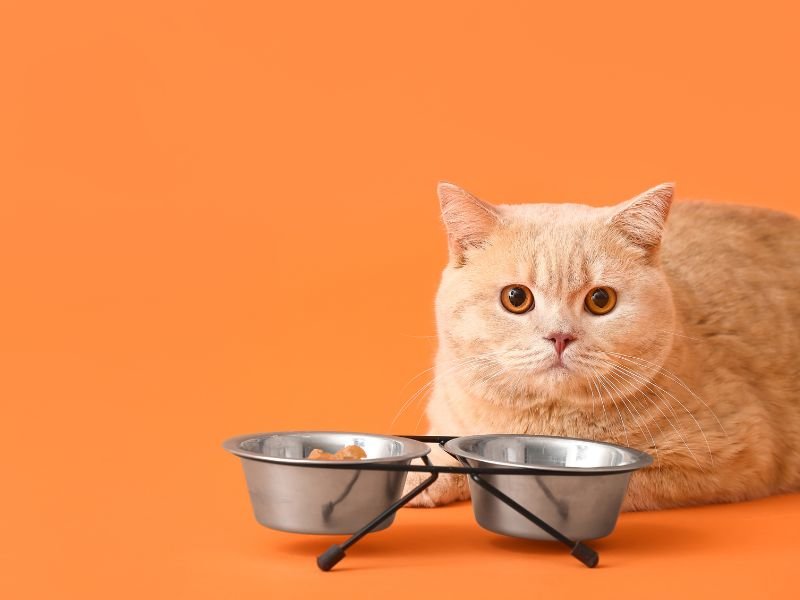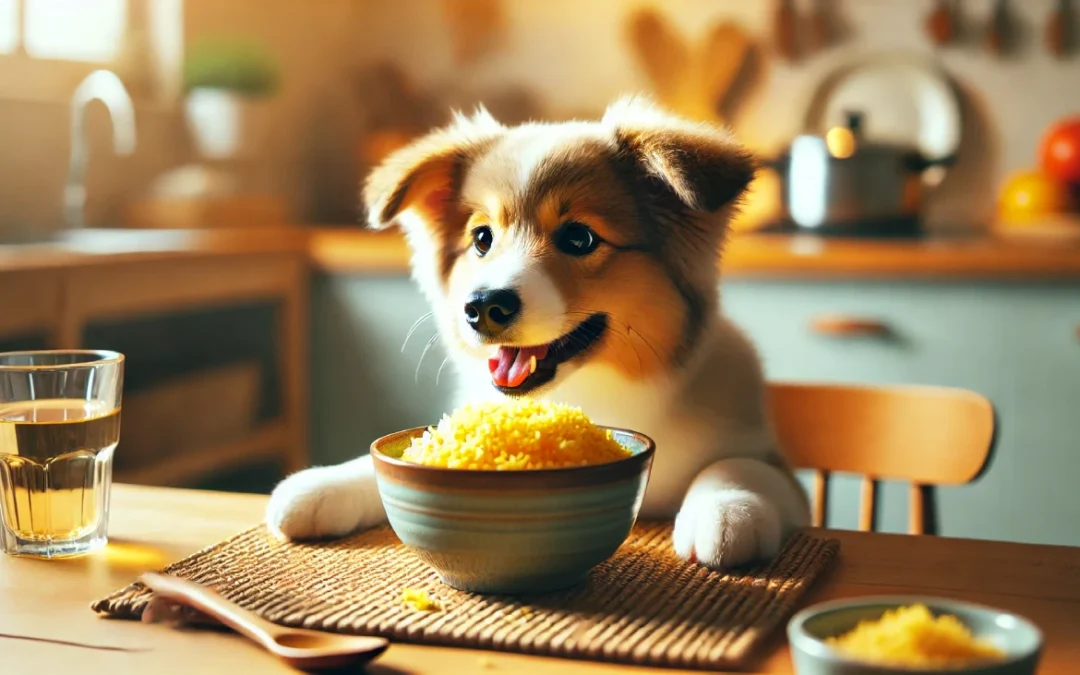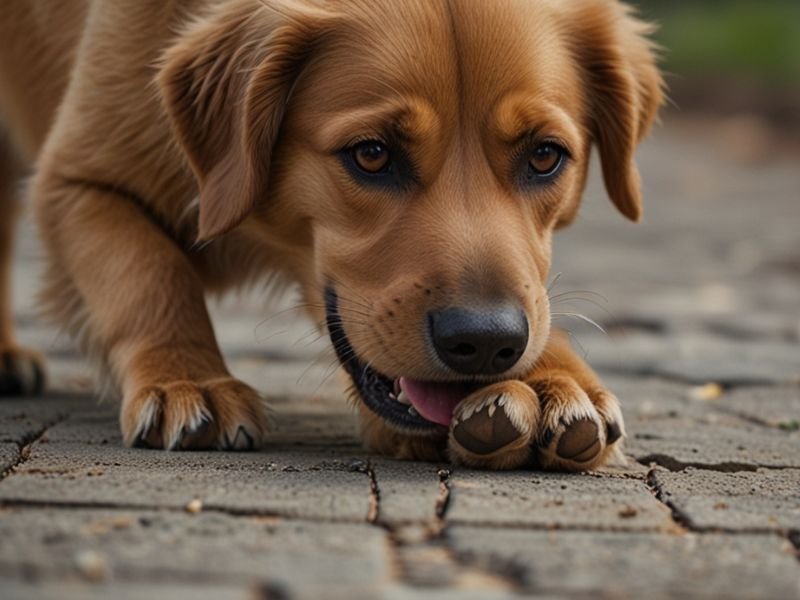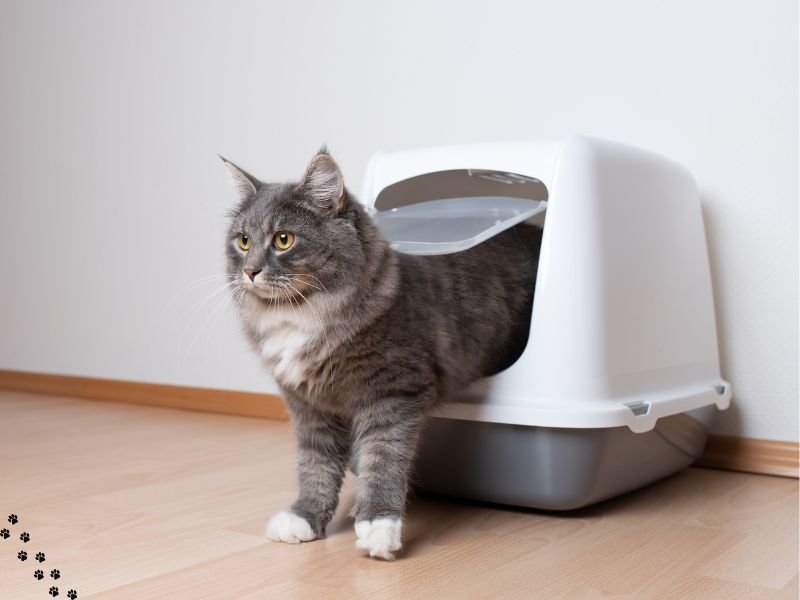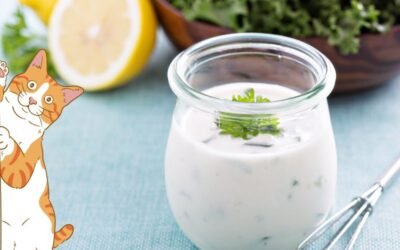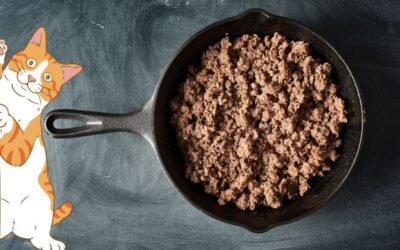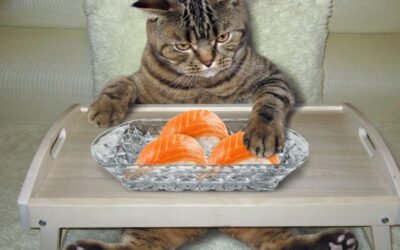Many pet owners love to spoil their furry friends with tasty treats, but when it comes to sharing meals, it’s essential to be cautious.
Among the countless human culinary wonders, pepperoni holds a special place in our hearts and stomachs. But what about our feline companions?
Can cats join in on the pepperoni party, or is it best to keep this delicious snack to ourselves?
In this article, we will delve into the world of cat dietary needs and explore whether cats can safely indulge in pepperoni or if it poses potential risks to their health.
So, before you toss your kitty a slice, let’s uncover the truth about cats and pepperoni!
Table of Contents
- Understanding the Risks: Can Cats Safely Consume Pepperoni?
- How Pepperoni Can Harm Your Feline Friend
- Exploring Potential Health Concerns Of Cats
- How Pepperoni Consumption May Affect Your Cat’s Stomach
- Alternatives to Pepperoni: Safe and Healthy Treats for Your Feline Companion
- What to Do If Your Cat Accidentally Ingests Pepperoni
- 6 Tips for a Balanced and Nutritious Feline Diet
- FAQs About Can Cats Eat Pepperoni
- Conclusion
Understanding the Risks: Can Cats Safely Consume Pepperoni?
Pepperoni, with its rich flavor and enticing aroma, has become a popular topping for many human foods. However, when it comes to our feline friends, caution must be exercised.
While cats are obligate carnivores and can safely consume some types of meats, pepperoni poses potential risks to their health.
Potential Dangers
Pepperoni is a processed meat product that contains a variety of ingredients, including spices, seasonings, and preservatives.
These additives can be harmful to cats, causing digestive upsets, allergic reactions, and even more severe complications.
Additionally, pepperoni often contains a high amount of salt and fat, which are not part of a cat’s natural diet and can lead to issues such as obesity and gastrointestinal distress.
Is Pepperoni Toxic to Cats?
While pepperoni itself is not considered toxic to cats, it is important to understand the potential health concerns associated with its consumption.
Cats have unique dietary requirements, and their bodies may not be equipped to handle the ingredients and high levels of fat and sodium present in pepperoni.
Regular ingestion of pepperoni can disrupt their delicate digestive balance and lead to long-term health problems if not managed properly.
It is crucial to prioritize your cat’s well-being and provide them with a nutritionally balanced diet. While the occasional small amount of plain, cooked meat may be safe for cats, pepperoni, in all its greasy and processed glory, should be avoided when it comes to their diet.
As responsible pet owners, it is our duty to prioritize their health and seek alternatives that are both safe and healthy for our feline companions.
How Pepperoni Can Harm Your Feline Friend
As much as we love indulging in a savory slice of pepperoni on our pizzas or sandwiches, it’s important to recognize that these delicious cured meats can pose serious risks to our feline companions.
While cats are obligate carnivores, meaning their diet should primarily consist of meat, pepperoni, in particular, can be harmful to their overall health and well-being.
Potential Dangers of Pepperoni for Cats:
- High Sodium Content: Pepperoni is typically high in sodium, which can be detrimental to cats. Unlike humans, who require a certain amount of sodium in their diets, cats have different dietary needs that do not align with excessive sodium intake. Consuming excessive sodium can lead to dehydration, increased blood pressure, and kidney problems in cats.
- Processed Meat and Additives: Pepperoni is a processed meat product that often contains various additives such as preservatives, spices, and artificial flavors. These additives can cause gastrointestinal upset, allergies, or even toxic reactions in cats. Additionally, the high-fat content in pepperoni can lead to pancreatitis, a painful and potentially life-threatening condition in cats.
- Potential for Foodborne Illness: Pepperoni, like other cured meats, carries the risk of bacterial contamination, such as Salmonella or Listeria. Cats are more susceptible to these foodborne pathogens, and consuming contaminated pepperoni can lead to severe gastrointestinal distress, vomiting, diarrhea, and other health complications.
Given these potential dangers, it is crucial to keep pepperoni and similar cured meats out of your feline friend’s reach.
Opting for safe and cat-friendly alternatives can help prevent unnecessary health risks.
Exploring Potential Health Concerns Of Cats
Pepperoni contains a high amount of sodium, spices, and seasonings, which can pose health risks to cats. The excessive sodium in pepperoni can lead to dehydration and electrolyte imbalances in cats, especially if consumed in large quantities.
Additionally, the seasonings and spices used in pepperoni, such as garlic and onion powder, can be toxic to cats and cause gastrointestinal distress or even damage to their red blood cells.
Furthermore, pepperoni is processed and often contains additives, preservatives, and artificial ingredients that may not be suitable for a cat’s digestive system. Cats are obligate carnivores, meaning their bodies are designed to consume a diet primarily consisting of meat.
Processed meats like pepperoni may contain fillers and additives that can exacerbate digestive issues and lead to upset stomach, vomiting, or diarrhea in cats.
It is important to note that even small amounts of pepperoni can potentially cause adverse effects in cats, as their bodies are not well-equipped to handle the ingredients and spices commonly found in this type of food.
Key Point: Pepperoni can be toxic to cats due to its high sodium content, spices, and seasonings. The processed nature of pepperoni and its potential additives can also lead to digestive upsets in cats. It is best to refrain from feeding your cat this type of food to minimize potential health risks.
How Pepperoni Consumption May Affect Your Cat’s Stomach
In this section, we will explore the potential digestive upsets that can occur when cats consume pepperoni.
While cats may find pepperoni tempting due to its strong aroma and flavor, it is important to understand the possible negative effects it can have on their digestive system.
Upset Stomach
Cats have sensitive stomachs, and the high fat and sodium content in pepperoni can easily lead to an upset stomach. Consumption of greasy and fatty foods like pepperoni can result in diarrhea, vomiting, or even pancreatitis, a serious inflammation of the pancreas.
Increased Risk of Gastric and Intestinal Issues
The spices and additives found in pepperoni, such as garlic and onion powder, can be harmful to cats. These ingredients can disrupt their digestive system and may lead to gastric and intestinal issues.
Cats are particularly sensitive to onion and garlic, as they contain compounds that can cause damage to their red blood cells.
Potential Allergic Reactions
Just like humans, cats can have allergies to certain foods. Pepperoni contains a variety of ingredients and spices, making it a potential allergen for cats.
If your feline friend has a sensitive stomach or food allergy, consuming pepperoni can trigger symptoms such as itching, skin rashes, or even respiratory distress.
It is crucial to remember that each cat is unique, and their tolerance and reaction to pepperoni may vary. While some cats may be able to handle small amounts without any issues, others may experience immediate digestive upsets. It is always best to err on the side of caution and avoid feeding your cat pepperoni altogether.
To ensure a healthy and balanced diet for your cat, consult with your veterinarian to discuss appropriate treats and snacks that are specifically formulated for feline consumption. Offering safe alternatives such as cooked chicken or fish can provide your cat with a tasty and nutritious treat without the potential risks associated with pepperoni.
By understanding the possible digestive upsets that can occur when cats consume pepperoni, you can make informed decisions about your feline friend’s diet and keep them safe and healthy. Remember, responsible pet ownership includes providing a diet that meets their nutritional needs and avoids any potential harm.
Alternatives to Pepperoni: Safe and Healthy Treats for Your Feline Companion
In this section, we will discuss some safe and healthy alternatives to pepperoni that you can offer to your beloved feline friend.
While we understand that cats may be drawn to the tempting aroma and taste of pepperoni, it is important to prioritize their health and well-being by choosing appropriate treats for them.
1. Cooked Meat
Instead of offering pepperoni, you can provide small amounts of well-cooked, boneless, and skinless chicken or turkey. These lean proteins can be a great alternative as they are easier to digest for cats.
Remember to remove any seasoning or spices before offering them to your feline companion.
2. Fish Treats
Many cats have a fondness for fish, making it a popular alternative to pepperoni. You can offer small portions of cooked and boneless fish like salmon or tuna.
However, make sure the fish is thoroughly cooked and free from any bones to prevent choking hazards.
3. Commercial Cat Treats
Commercially available cat treats can be a convenient option when looking for safe alternatives to pepperoni. Look for treats that are specifically formulated for cats and made from high-quality ingredients.
These treats are designed to provide the necessary nutrients while maintaining the overall health of your feline companion.
4. Veggies and Fruits
Some cats may enjoy small portions of certain fruits and vegetables. Carrots, green beans, and peas can be cooked and offered as occasional treats.
However, it is important to note that cats are obligate carnivores, and their diet primarily consists of animal-based protein. Therefore, these plant-based treats should be given in moderation.
5. Freeze-Dried Treats
Freeze-dried treats can be a convenient and healthy option for feline friends who enjoy a bit of crunchiness. These treats are made by removing moisture from the raw ingredients, keeping the nutrients intact.
Look for freeze-dried treats made from high-quality protein sources like chicken, turkey, or fish.
Remember, when introducing any new treats to your cat’s diet, it is crucial to do so gradually and in moderation. Each cat has different dietary needs and preferences, so it is always recommended to consult with a veterinarian before incorporating any significant changes to their diet.
By choosing safe and healthy alternatives, you can ensure your feline companion receives the love and care they deserve.
What to Do If Your Cat Accidentally Ingests Pepperoni
In this section, we will discuss the necessary response actions if your cat accidentally ingests pepperoni. While it is best to prevent your feline friend from consuming pepperoni altogether, accidents can happen, and it is important to know what steps to take in such situations.
Assess the situation
The first step is to assess the situation. Look out for any immediate signs of distress or discomfort in your cat. Common symptoms of pepperoni ingestion may include vomiting, diarrhea, excessive drooling, abdominal pain, or decreased appetite.
If your cat is experiencing any of these symptoms, it is important to take action promptly.
Contact your veterinarian
If your cat shows severe symptoms or appears to be in distress, seek immediate veterinary assistance. Even if the symptoms seem mild, it is always a good idea to consult your veterinarian.
They will be able to provide professional guidance based on your specific cat’s health history and circumstances.
When contacting your veterinarian, be prepared to provide details such as the amount of pepperoni ingested, the time of ingestion, and any observed symptoms.
This information will help them assess the situation accurately and determine the best course of action.
Follow your veterinarian’s advice
Once you have reached out to your veterinarian, carefully follow their advice. They may recommend bringing your cat in for an examination or providing instructions for managing the situation at home. It is crucial to adhere to their recommendations to ensure your cat’s well-being.
In some cases, your veterinarian may advise inducing vomiting or recommend activated charcoal to help reduce the absorption of any potential toxins.
Never attempt to induce vomiting or administer any medications without the guidance of a professional.
By taking prompt action and seeking the assistance of a veterinarian, you can help ensure your cat’s health and safety in the event of accidental pepperoni ingestion.
Remember, prevention is always better than cure, so it is important to keep foods like pepperoni safely stored away from your cat’s reach.
Note: This article provides general information and should not replace the advice of a qualified veterinarian. Always consult a professional if you have any concerns about your cat’s health or dietary needs.
6 Tips for a Balanced and Nutritious Feline Diet
In order to ensure the health and well-being of our feline friends, it is essential for pet owners to take on the responsibility of providing a balanced and nutritious diet. A well-planned, wholesome diet not only promotes proper growth and development but also helps prevent medical conditions and enhances your cat’s overall quality of life.
1. Consult with a Veterinarian
One of the first and most important steps toward establishing a balanced feline diet is consulting with a veterinarian. They are the best resource to provide professional advice tailored to your cat’s specific needs.
A veterinarian can assess your cat’s age, weight, activity level, and any existing medical conditions to recommend an appropriate diet plan.
2. Choose High-Quality Cat Food
Opt for high-quality commercial cat food that is formulated to meet all the nutritional needs of cats. Look for a product that has been approved by the Association of American Feed Control Officials (AAFCO) and contains a balanced mix of protein, fat, carbohydrates, vitamins, and minerals. Avoid foods that have excessive fillers, artificial additives, and preservatives.
3. Consider a Combination of Wet and Dry Food
Offering a combination of wet and dry cat food can provide several benefits. Wet food helps to ensure proper hydration and can be more palatable for picky eaters.
Dry food, on the other hand, helps maintain dental health by promoting chewing and reducing plaque buildup. It is essential to find the right balance between the two based on your cat’s individual preferences and dietary needs.
4. Avoid Harmful Foods
While it’s tempting to share our own meals with our furry companions, it is crucial to avoid feeding them harmful foods.
Some foods like chocolate, onions, garlic, and grapes can be toxic to cats and should be completely avoided.
Additionally, certain spices, including pepperoni, can cause digestive issues and should not be included in their diet.
5. Monitor Portion Sizes
Overfeeding can lead to obesity, which can have detrimental effects on your cat’s health. It is essential to monitor portion sizes based on your cat’s age, weight, and activity level.
Obesity can lead to various health issues such as diabetes, joint problems, and decreased life expectancy. Your veterinarian can guide you on the appropriate portion sizes for your specific cat.
6. Offer Healthy Treats
Treats are a great way to reward your feline companion, but they should be given in moderation and be nutritious.
Look for cat-specific treats that are low in calories, free from harmful ingredients, and provide additional health benefits.
Alternatively, you can offer small pieces of cooked chicken or fish as a healthy and natural treat.
By following these responsible pet ownership tips and ensuring a balanced and nutritious feline diet, you can help your cat lead a long, happy, and healthy life.
Remember, always consult with your veterinarian for personalized guidance and make gradual dietary changes to avoid stomach upsets or other issues.
FAQs About Can Cats Eat Pepperoni
Is it safe for cats to eat pepperoni?
Although pepperoni is not toxic to cats, it is not recommended for them. The high-fat content and seasoning can lead to digestive issues, diarrhea, and potentially pancreatitis in cats.
Can cats have a small piece of pepperoni occasionally?
It is best to avoid feeding cats any amount of pepperoni. Even a small piece can pose risks due to its high fat, sodium, and spice content, which can upset their stomach and potentially lead to more severe health problems.
What are the potential risks of feeding pepperoni to cats?
Feeding pepperoni to cats can cause gastrointestinal upset, pancreatitis, obesity, and potentially lead to long-term health issues. The high levels of fat, sodium, and spices can be harmful to their digestive system.
Are there any alternatives to feeding pepperoni to cats?
Yes, there are safer alternatives that cats can enjoy as occasional treats. Opt for small pieces of cooked, unseasoned meat like chicken or turkey, which are leaner and less likely to cause harm to their health.
What should I do if my cat accidentally eats pepperoni?
If your cat accidentally consumes pepperoni, monitor them closely for any signs of digestive distress, such as vomiting or diarrhea. If symptoms persist or worsen, it is best to consult a veterinarian for further guidance.
Conclusion
Feeding pepperoni to cats is not recommended due to its high-fat content, seasonings, and potential health risks.
It is best to offer cats safer alternatives, and if they accidentally consume pepperoni, monitor their health closely and seek veterinary advice if necessary.

